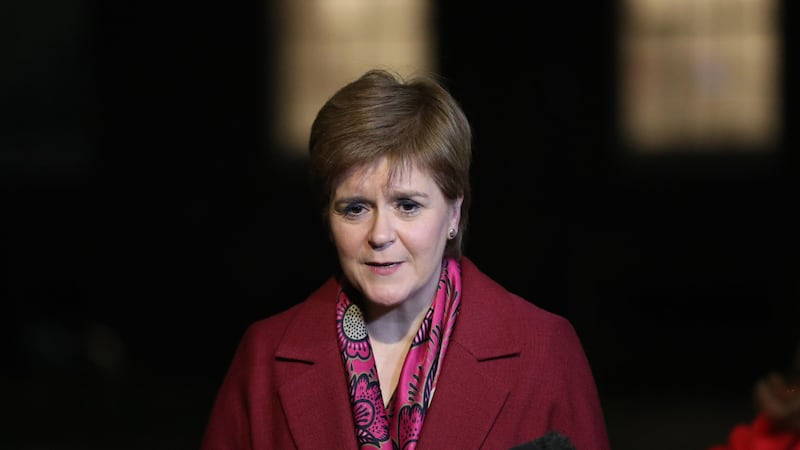I ONCE saw Sean Connery firing a shot: don’t worry, he was only acting. The scene was Heuston Station in Dublin in the late 1970s, where a film called ‘The First Great Train Robbery’ was being made. It was set in the 19th century and the location was supposed to be in London but the Irish venue was chosen instead, presumably because it bore a closer resemblance at that time to London Bridge Station in the 1850s.
Instead of his traditional James Bond role, Connery played a master-thief called Edward Pierce and, when I saw him, he was dressed for the part, complete with fancy walking-stick. He was pretending to take a pot-shot with the stick, for the amusement of another cast-member.
Despite the Bond maxim that “You only live twice”, Connery had one life-span but a pretty long one at that and he was aged 90 at the time of his recent death. Since he always seemed to be Scottish to the very core, it was interesting to read that a great-grandfather of his hailed from County Wexford, where the present writer was also born. A member of the travelling community, James Connery is said to have died of bronchitis in Glasgow in July 1914; his great-grandson Sean was knighted by Queen Elizabeth, just an hour’s drive away in Edinburgh, in July 2000.
Despite having made his name portraying a British secret agent, Connery was an ardent supporter of Scottish independence. First Minister and leader of the Scottish National Party (SNP) Nicola Sturgeon wrote on Twitter that she was heartbroken at his passing and added: “He was a global legend but, first and foremost, a patriotic and proud Scot”.
Connery was doubtless disappointed that, in the September 2014 referendum on Scottish independence, the No side won by 55.3 to 44.7 per cent. But a further referendum may be in the pipeline: two recent polls showed majorities for independence ranging from two to 12 per cent.
Scottish independence would be a more serious blow to the United Kingdom than if Northern Ireland became part of a 32-county sovereign state. In demographic terms alone, Scotland’s population is just short of 5.5 million, two-and-a-half times greater than the 1.8 million in the six counties of the north.
First Minister Sturgeon has received Scottish parliamentary approval to seek a second independence vote. In the 2016 UK-wide referendum on Brexit, Scotland voted by 62 to 38 per cent in favour of remaining in the EU and nationalists have argued since that the Scottish electorate should be given a choice between Brexit and an independent state.
However, Boris Johnson refused to give consent and said he would “continue to uphold the democratic decision of the Scottish people” in the 2014 referendum. Mind you, given the turmoil in Number Ten of late, you wouldn’t bet the house on Boris holding onto his present job in the long term.
Labour leader Sir Keir Starmer has not rejected the possibility of a second referendum in the long term although he is clearly less than enthusiastic about it. He has accepted that, if the SNP wins a clear majority in next May’s elections to the Holyrood parliament, then it would have a mandate to hold another independence vote although he said the middle of a pandemic “really isn’t the time to be having a discussion about independence”. Meanwhile, former Tory prime minister Sir John Major has suggested a two-stage referendum process: one to allow negotiations on independence and the second to vote on the outcome of those talks.
The next UK general election is due by May 2, 2024 at the latest and if, for example, Labour needed SNP support in the Commons afterwards to form a government, presumably an independence referendum would have to be part of the deal.
There are potentially huge implications for Northern Ireland in all of this. A majority Yes vote would surely have a traumatic effect on unionists who are psychologically and culturally far closer to the Scots than to the English or indeed Welsh. Boris Johnson has even suggested building a bridge between Ulster and Caledonia. Mary Lou McDonald has publicly declared Sinn Féin’s support for Scottish independence but if the party’s representatives started expressing that view on a regular basis it would inevitably be used against the Yes side. A traditional phrase comes to mind: whatever you say, say nothing.
Email: Ddebre1@aol.com; Twitter: @DdeBreadun








